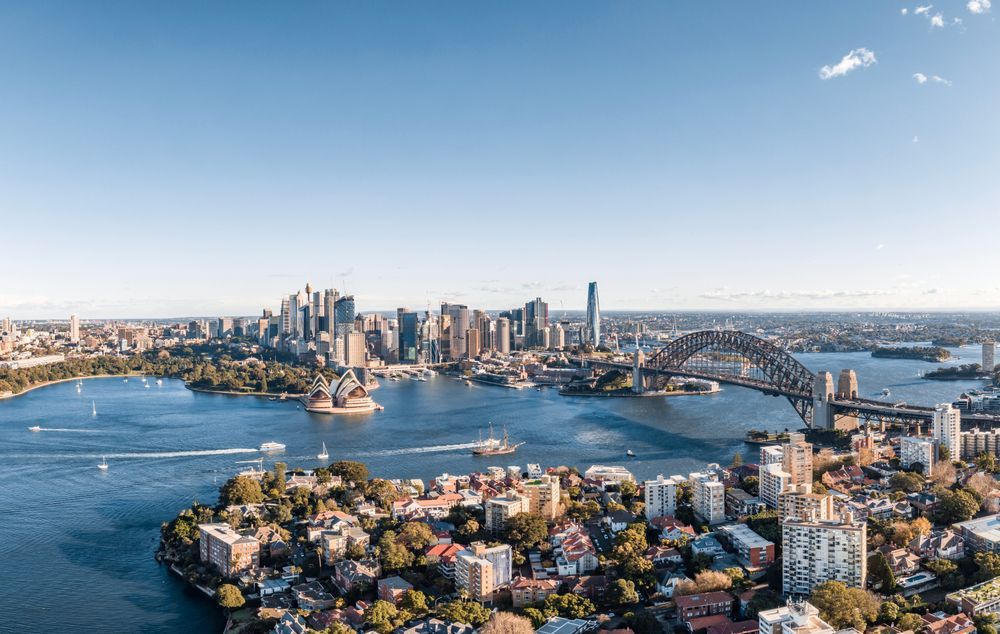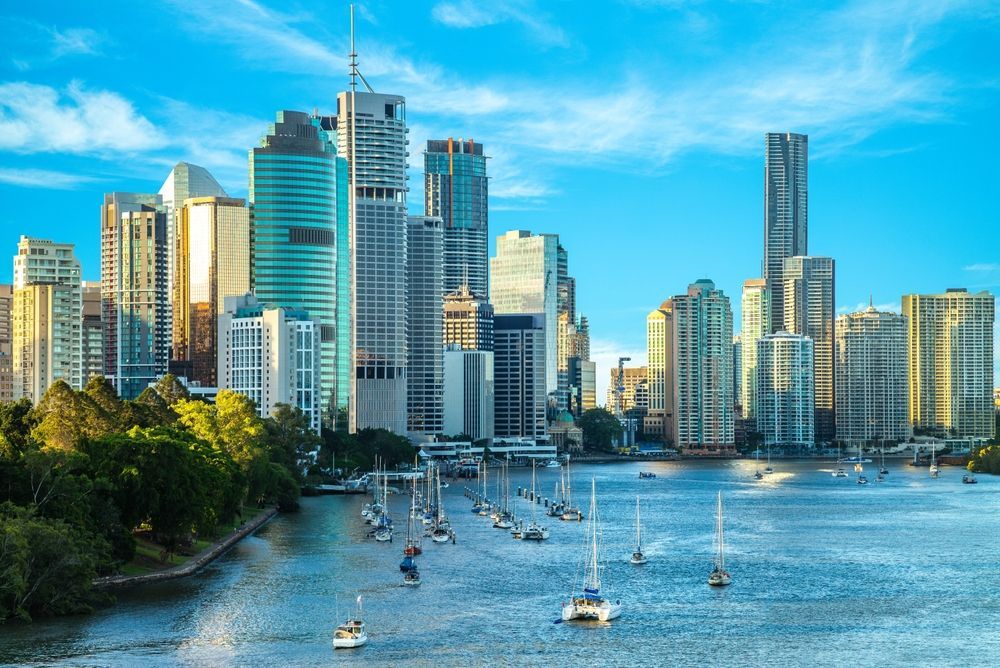Entrepreneurial Orthopaedic Surgeon: Surgical Recruiter Finds Perfect Opportunity in Abu Dhabi, UAE
Our candidate Dr Oussama Chaar is an entrepreneurial orthopaedic surgeon who loves challenges. Having excelled in his postgraduate orthopaedic residency in Belgium, he had returned to his native Syria to build a dynamic and busy practice when war broke out. As bombs rained down on Damascus, he need a new challenge and our surgical recruiter found the perfect opportunity opening a new chapter of his career in Abu Dhabi, United Arab Emirates.
Dr Chaar was reluctant to leave the orthopaedic practice he had proudly built in Damascus but as war raged, safety became a priority and he sought to find refuge in a stable environment, even if it meant starting again from scratch. Odyssey's surgical recruiter had an idea. A public sector hospital in Abu Dhabi had a new head of orthopaedics who was determined to build the best orthopaedic department in the United Arab Emirates (UAE), staffed by experienced surgeons with subspecialist skills in diverse fields.
Dr Chaar excelled in arthroplasty, particularly of knee and hips, was highly experienced, and seemed to be an excellent potential match for the new department. A short while later he was enthusiastically met by the Orthopaedic Chief and hired. A new career commenced and prospered initially in the public sector and later on in one of the top private hospitals where he built the UAE's leading service for revision knee arthroplasty.
Here is the story in Dr Chaar's own words:
Dr Oussama Chaar is an orthopaedic surgeon in Abu Dhabi, United Arab Emirates. He shares his experience and offers this valuable advice for surgeons looking to work in the UAE " Good training, skills and excellent communication are important for a surgeon in the UAE"
Background
Dr. Chaar obtained his MD degree in Orthopedic Surgery and Traumatology with a subspecialty in arthroplasty from the University of Liège in Belgium. He spent 25 years working in Belgium, as well as in Syria and the United Arab Emirates. He is a member of the Belgian Society for Orthopedic Surgery and Traumatology, and the Syrian Society for Orthopedic Surgery and Traumatology. His aim in the United Arab Emirates was to develop a highly specialised orthopaedic service in knee surgery in the public sector hospitals of Abu Dhabi.
Discussion
Q: What do you believe that you have brought to the UAE?
Oussama Chaar: The major thing that I can help with is that in Europe and North America we started to have subspecialties a long time ago. There are no more solely orthopaedic surgeons, they all have subspecialities like shoulder surgery, arthroplasty surgery, lower limb surgery, spinal surgery, hand surgery and this is something that is missing over here.
We have surgeons of course, good surgeons, they are doing almost everything in orthopaedic surgery, but it’s difficult to do everything well. I think this is the major thing that I can help with. I want to help the healthcare departments here develop, to give a high level of healthcare to the local patients and all the people here in the UAE.
Q: How much have things changed in subspecialties since you moved here?
Oussama Chaar: I think that a lot of people here are now used to the idea of subspecialties, so you now have local patients looking for the right surgeon, they are not just going to the first surgeon, they are deciding that, when the surgeon says ‘you need joint replacement’, ‘you need total knee replacement’ they are going to really look for the right person. Someone who is mainly doing knees, or mainly hips or whatever.
The patients are always asking you, ‘how many surgeries like this are you doing a year’ which was not the case in the past when they just went to an orthopaedic surgeon. I think this is now the mentality, and people have just got used to it.
Q: Is the increased awareness of subspecialities something you’re pleased about?
Oussama Chaar: It’s good for both the surgeon and for the patient. The patient is getting a good quality of care, and for the surgeon it’s easier to do what you are used to doing.
When I started at Mafraq Hospital they wanted to develop arthroplasty surgery through a program called mufassil. In Arabic that means ‘my joints’. It was initiated by the head of department, but when I was there I was responsible for this program and we started to do a lot of surgeries, making many joint replacements. Then I moved to the private sector and I continued to have patients from everywhere for joint replacement, and a lot of colleagues also started to trust me. They were sending difficult primaries, revision cases, everything. So I was working in a very good environment, with lovely, friendly colleagues who you could exchange knowledge with and where we referred patients by each other, so it was good.
Q: What are the biggest differences you noticed between the public and private sectors?
Oussama Chaar: I think the skills priorities are the same as in private hospitals, but the challenge in public hospitals is organisational problems, and finding staff who are prepared to work. For someone like me who worked all his life in private facilities you have to push people a little bit to work more, and make sure that they’re not looking at their watch every five minutes! Otherwise they have very good equipment, the infrastructure is very good, and they all support the surgeons to help them do their job in the best way. I think that, compared to other countries, the public hospitals are doing very well here.
Q: What attracted you to your current role?
Oussama Chaar: For me it’s a jump in my career to come to a big private hospital. They needed someone to come and organise the orthopaedic department and do revision surgery, pelvic fractures and difficult primaries. It wasn’t a salary issue, it was really for me to work in a facility where everything is available like dialysis, cardiologists, cath lab and so on.
We are now focusing on revision surgery because, for many years, surgeons were doing primaries here, but only a few were doing revision surgery, so now we’re really developing this. We talked with the hospital about maybe having a centre of excellence for hip surgery, to get patients referred for revision surgery here.
We are developing, encouraging people to have their surgeries here and for about two years now, international patient care have been referring their patients to me before sending them abroad. So if I’m able to do the surgery then they’re not sending the patient abroad. About 90% of patients are staying here in the UAE now and getting their surgery under my care.
What is good is to have the support from HAAD (Health Authority Abu Dhabi) because international patient care is a HAAD department, so they don’t care if you’re in a small hospital, or a big hospital. They were sending cases to me in Mafraq and so they didn’t care that I’m now at a private hospital because they are still sending patients to me. They want patients to have surgery in their country, which is easier for them than travelling to Germany, or to the UK or to the US. This is encouraging, and gives surgeons the possibility of doing majors.
Q: What can be the biggest challenges facing people moving to the UAE?
Oussama Chaar: The challenge for surgeons here is mainly the communication barrier. You have a lot of people who can’t speak English, they are mainly talking Arabic, so you can get an interpreter, but this sometimes can make it hard to communicate with people when you are talking about surgery and complications, and the conviction is not really there when it’s translated.
It’s also good for people coming from outside the country to get used to the culture. To know how the people think here. People are really attached to their culture and they want people coming to work here to respect this, which is normal. They must know a bit about the culture, about how the people live here.
The unique part compared to other places is that in the UAE you can live in the way that you want. You can live in a European way, in a Middle Eastern way, in between. Really there are no difficulties. I think Europeans can easily get used to the way of life here, they can even live in the same way as in Europe. Everything is available.
Q: How did you first go about making a move happen?
Oussama Chaar: My first contact before coming here to the UAE was Odyssey Recruitment. I had a very nice conversation with Karen Wilson. She asked me about my experience, about what I can do and it was a very positive conversation. Then I sent my CV and we discussed it together, and she gave me all the support to find a place here. It was in Mafraq Hospital, and she was following up all the time by email, and by phone, even for administrative steps like the license. It was a great experience.
She also used to follow the candidate for a long time, so when I called her once for the New Year she knew already that I had moved from Mafraq, and that I was already in another private hospital. This is a very good thing.
Q: What advice would you give anyone about the recruitment process?
Oussama Chaar: The only issue is that it takes time, when you are processing the license they ask for a lot of paperwork, but it’s fine. By the end everything is ok, it just took about seven months which could be a bit of a problem for some people.
I think that HAAD are accelerating this procedure now, it’s apparently quicker than it was in the past.
Of course the place where you trained is also very important because, like any student, you have to receive a good education. So a surgeon has to be trained in a very good centre, but having good training is not solely enough. For surgeons there is the skill, some surgeons are trained in a very good centre, but they don’t have the skill.
The skills you see come with experience, so experience is very important because it will show if the surgeon is doing well, if he has the skills, if he has success in his work and how he’s managing. You know communication with the patient is very important, sometimes you have a very highly skilled surgeon, but they have very bad communication skill with the patient and so they have really few patients. So I think three things are important; good training, good skills and good communication skills.
Finding a job as an orthopaedic surgeon in the UAE
The job market for orthopaedic surgeons in the UAE is highly competitive. If you are considering an orthopaedic surgical career in the UAE or other Middle Eastern countries, contact the recruitment team at Odyssey Recruitment for guidance.
9 September 2024
Share this post on Social Media
Leave a Comment
SEARCH JOBS
Ready for a change? Whether you’re looking for higher compensation, greater autonomy, a better work-life balance, or just a change in scenery, we have job opportunities in wonderful locations across the world. Start your medical or dental job search today and embark on your next career move.
SIGN UP FOR JOB ALERTS
We believe everyone deserves to find their dream job. Be the first to hear about new practice opportunities in exciting locations across the world Simply sign up for job alerts in your chosen field, and we will email you when a new job in your specialty becomes available.


















